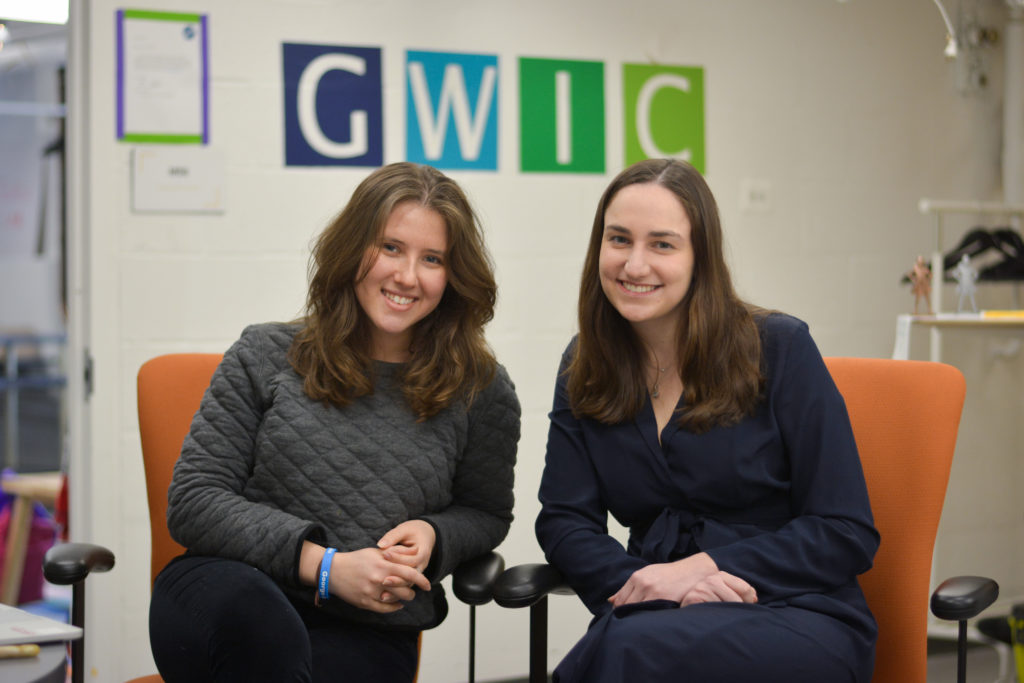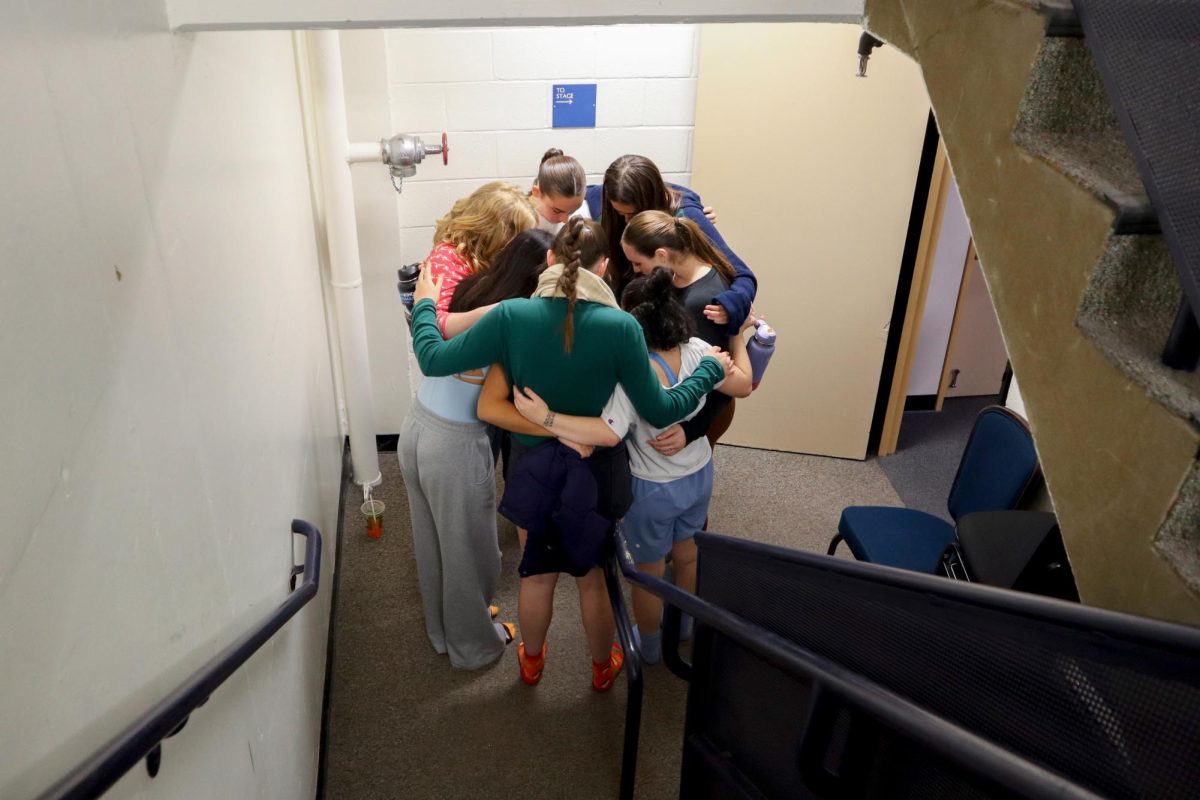A new student-run “hackathon” will challenge students to create solutions for issues in the fashion industry this weekend.
The inaugural GW Fast Fashion Textile Tech Hackathon, which will be hosted by the GW Innovation Center, will have students participating in a 24-hour competition to develop sustainable solutions to issues like pollution and textile waste, the event’s organizers said.
About 100 participants in groups of two to five individuals will be tasked with generating tangible solutions – like a product, website or app – and will present their idea to a panel of judges as part of the competition over the weekend.
Abby Drucis, a senior and co-founder of the hackathon, said she is a public health major, but an experience on campus sparked her interest in fast fashion. She said she created the event in response to the concept that people are buying clothing “as if it’s disposable.”
“When I was living in Ivory during move out a few years ago, I saw a pair of Gucci jeans with tags on them in the pile of trash,” Drucis said. “That says something about our campus.”
Drucis said she hopes the event will inspire students to gravitate toward the “future of fashion.”
“When we talk about the future of fashion, we’re talking about slow fashion, making really targeted choices about shopping, knowing where your clothes came from,” Drucis said. “Were they ethically made? How much water did it take to make that t-shirt?”
Teams will have access to a variety of tools including sewing machines, 3D printers, fabric, markers and poster board during the competition. Participants will also be allowed to use laptops and cellphones to innovate an app or website to convey their solution.
After more than eight and a half hours to solve the fashion-industry problem they were presented with, teams will share their idea to a group of judges comprised of unannounced GW faculty and professionals from the fashion and sustainability communities, and prizes will be issued to the first-, second- and third-place winners.
She said the style of the event is unique because instead of just discussing solutions – it pushes participants to make solutions that can make a difference in the real world.
“It’s time to do something,” Drucis said. “People aren’t just sitting around thinking, they’re actually creating something and sharing their ideas.”
The event, which will take place in the Science and Engineering Hall, will also have various hourlong workshops, including an introduction to coding and a presentation on how to effectively pitch an idea. Additionally, Abbas Haider – the CEO of a men’s clothing brand, Aspetto, and a Forbes 30 Under 30 recipient – will be the keynote speaker during the given lunch period.
The hackathon is a precursor to an exhibition that will open at the Textile Museum in July called “Fast Fashion / Slow Art,” an exhibit focusing on the drawbacks of fast fashion.
Co-founder Alana Gross, a senior majoring in accounting, said that the fast pace of the industry and emphasis on low prices are also some of the downfalls that the hackathon hopes to address.
“Think of H&M, Zara and Forever 21, these stores that you see changing their line of clothing almost every month – it’s because they are making really cheap clothing that is bad for the environment,” Gross said.
Sarah Shavin, a senior majoring in business and an Innovation Center fellow, said the events the center puts on are not exclusive to one type of person or major.
Shavin will work at the event, but it isn’t her first foray into fashion. Shavin developed an app last semester that helps users document outfits, receive feedback and get inspiration with the help of the Innovation Center.
Shavin said the hackathon will help break the barrier between fashion and other disciplines, inviting students from all schools, majors and backgrounds to collaborate.
“Fashion is such an interdisciplinary issue – it ranges from international affairs, to design, engineering, business, communications, but I think it often gets this reputation that it’s only clothing and what you read in magazines about fashion,” Shavin said. “I think it’s an interesting opportunity to destigmatize people who don’t necessarily think they’re interested or fit into the conversation around fashion to reconsider it from a new angle.”




